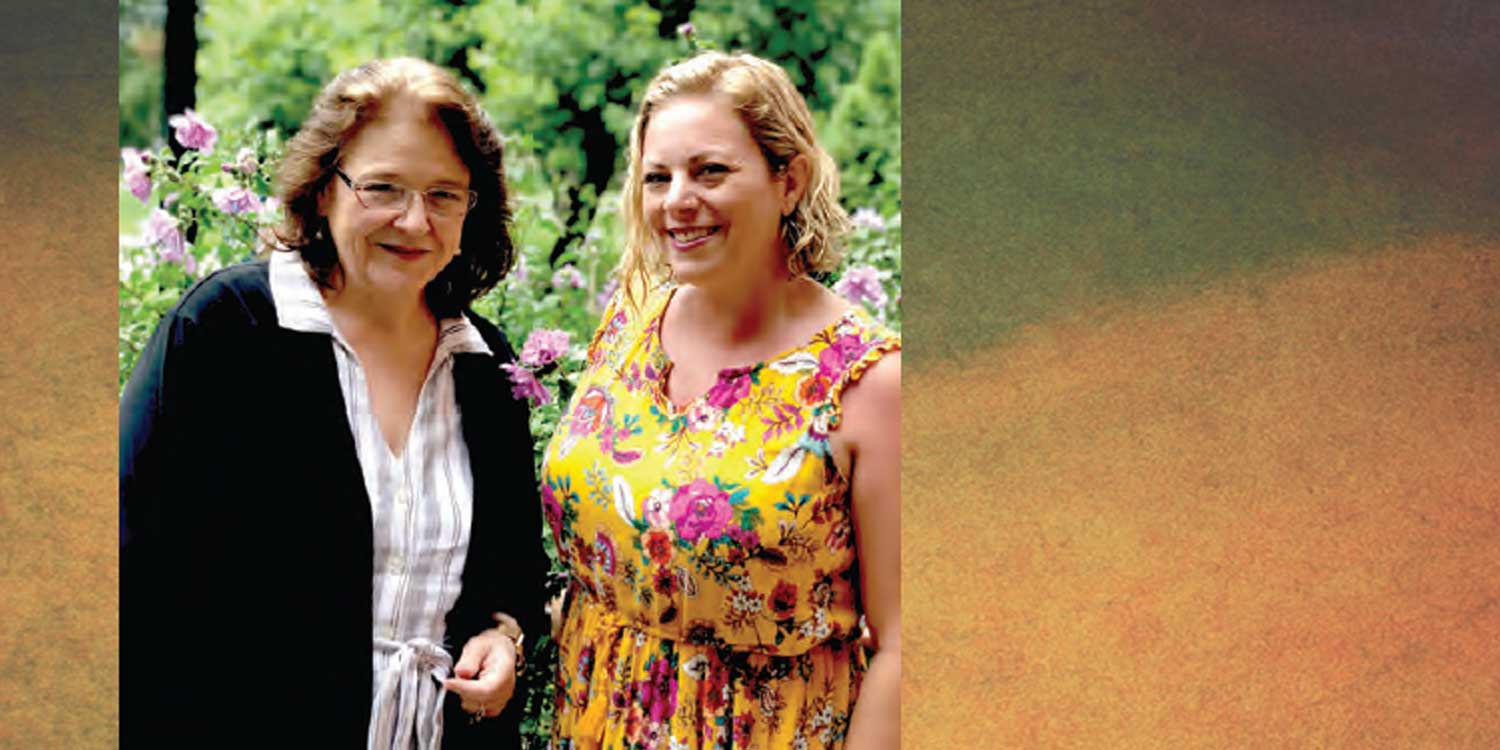 Administrators of Hope: Two Women Coordinating an Attack on Alzheimer's"
class="bg-img"
fetchpriority="high"
loading="eager"
decoding="async">
Administrators of Hope: Two Women Coordinating an Attack on Alzheimer's"
class="bg-img"
fetchpriority="high"
loading="eager"
decoding="async">
Day in and day out, Dee Moniz and Sherri Palumbo help hope happen. As a senior administrative coordinator and administrative coordinator respectively, they're part of a team of administrators that are essential to keeping operations humming at the Memory and Aging Program at Butler Hospital. The program is a world leader in Alzheimer's research, offering people from all over Rhode Island and beyond the opportunity to try to prevent, slow, or even someday not too far in the future even stop or reverse the development and progression of this devastating disease.
Their roles give Moniz and Palumbo a unique first-hand view into how Alzheimer's affects not only the individual, but families as well. It's not always an easy perspective to have, but they wouldn't have it any other way. Here, they share why they're so committed to the program, what advice they'd give to individuals and families dealing with dementia or Alzheimer's, and a little bit about themselves, too...
Dee: My journey with the MAP began in April of 2014 when I heard of Dr. Salloway’s research program from a close friend and through my work with the Butler Hospital Foundation. Every day I am inspired by our patients and their families. Alzheimer’s has touched my family as well, and as a caretaker I understand the incredible burden that comes with trying to provide the best for a loved one. My hope is that someday I can actually tell people that we can treat and possibly cure their loved one. What a fantastic day that will be!
Sherri: I have been at Butler Hospital for 10 years and I joined the Memory and Aging Program in 2014 as an Administrative Coordinator in the office. I love supporting a team that is making a positive impact on the lives of patients and families. I embrace my role of making this an enjoyable experience for our patients and families, and I like to spread a little sunshine amongst the staff too.
Dee: Families sometimes face devastating effects on their social and financial lives, postponing vacations, missing time from work and their extended families. They are in need of so many services which are just not available. In particular, it is increasingly difficult to find a specialist who deals with behavioral symptoms in geriatric patients. Getting patients to the right specialist to address their particular needs is always a challenge.
Sherri: I think care for this population is really a group effort. As a mom, I’ve been told numerous times that “it takes a village” to raise kids, and I’ve found that to be true in so many aspects of life. At the Memory and Aging Program, we are part of the “village” looking out for the best interest of our patients in partnership with their families, loved ones, and other providers. We are all in this together while we work towards a cure. It is empowering to see the hope that our research brings and the joy that springs from the connections our patients form with each other.
Dee: Music has always been a big part of my life. My grandmother was an opera singer, and I learned piano at 3 years of age. I used to be a Suzuki piano teacher for children 4-10 years old!
Sherri: I’m a bit of an open book so there aren’t many surprises. Because of that, those that don’t know me closely may view me as extroverted because my job is very social. I think people may be surprised to know I really enjoy quiet time alone. Time spent connecting with my inner self helps me better connect with others, be more mindful, and have a positive outlook.
To learn more about the Memory and Aging Program and how you can get involved, visit butler.org/memory.
Disclaimer: The content in this blog is for informational and educational purposes only and should not serve as medical advice, consultation, or diagnosis. If you have a medical concern, please consult your healthcare provider or seek immediate medical treatment.
Copyright © 2026 Care New England Health System